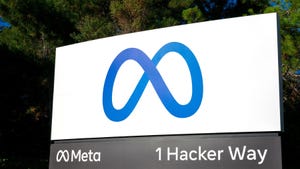SCO Successor Xinuos Files Lawsuit Against IBMSCO Successor Xinuos Files Lawsuit Against IBM
The suit alleges that IBM stole proprietary code from a company whose assets Xinuos now owns, then colluded with Red Hat to lock Xinuos out of the Linux market.
April 6, 2021

UnixWare/OpenServer vendor Xinuos filed a complaint on March 31, 2021, with the US District Court of the Virgin Islands claiming that IBM copied code owned by Xinuos into its Unix operating systems. The suit may cause a few Linux users with decades-long memories to raise an eyebrow and set a news alert to see how this particular court case will go.
In the suit, the company also claimed that IBM and Red Hat have for years been engaged in an antitrust conspiracy to corner the server operating system market, and that IBM's purchase of Red Hat was part of that conspiracy.
To many longtime Linux users, this action is "deja vu all over again," as Xinuos is the company that purchased the SCO Group – or what was left of it – ten years ago in 2011. And SCO was famous not for its products, but for the six years it spent in court from 2003 to 2009 seeking a billion-dollar-plus judgement against IBM with the claim that IBM had taken proprietary code from SCO Unix and put it in the Linux kernel.
SCO eventually lost that suit once a third company, Novell, got involved.
Here’s where it gets tricky: In March 2003, the SCO Group claimed ownership of AT&T Unix and said that IBM’s distribution of Linux was actually an unauthorized distribution of AT&T Linux. Two months later, Novell asserted that it had only sold the marketing rights to AT&T Unix to SCO, not the intellectual property around AT&T Unix. For the next two years, SCO and Novell sued and countersued each other over the issue of who owned the intellectual property around AT&T Unix. And in 2007, a federal judge ruled that Novell was the owner of the UNIX and UnixWare copyrights.
That should be the end, right? Wrong. In 2009, that 2007 ruling was partially reversed, so SCO continued pursuing legal action to prove it owned the copyrights to the intellectual property associated with AT&T Unix. It lost SCO v. Novell in 2010, then lost the appeal in 2011.
In 2011, Xinuos, then UnXis, a company formed specifically to buy SCO's Unix software assets (which by then hadn't been updated for more than four years), placed a $600,000 bid for the company and won against a single opposing bid of $18.
Although the lukewarm corpse of SCO would continue to attempt to revive its case against IBM through a series of appeals as recently as 2017, the sale of its intellectual property assets to Xinuos effectively put an end to the threat against IBM and Linux.
In 2016, Xinous's CEO Sean Synder said, "We are not SCO. We are investors who bought the products. We did not buy the ability to pursue litigation against IBM, and we have absolutely no interest in that."
So what has changed in five years?
Xinuos insists it's because IBM and Red Hat have conspired to unfairly tilt the competitive playing field in their favor, and not because time has passed their product by.
"IBM and Red Hat conspired to illegally corner a market and crush competition," the company wrote in its legal complaint.
For the copyright claim, which targets only IBM, the company said, "IBM stole Xinuos’ intellectual property and used that stolen property to build and sell a product to compete with Xinuos itself."
The intellectual property in question is SCO's UnixWare and OpenServer code, which was then allegedly incorporated into the IBM AIX operating system.
The software that Xinuos is claiming IBM infringed was created after 1995, i.e. the year of the Novell sale to SCO. This disputed software largely revolves around code from Project Monterey, which was started by IBM, SCO, Sequent and Intel in 1998 as an attempt to make Unix a more competitive product by turning it into a single operating system that would allow users to more easily move workloads from one version of Unix to another. IBM's contribution to the project was providing POWER and PowerPC support from AIX.
In early 2001, IBM began backing out of the project, a few months after the company had announced $1 billion on Linux development.
Twenty years later, Xinuos is claiming IBM stole code from the Project Monterey collaboration.
"Through Project Monterey, IBM gained confidential access to the Code," Xinuos said in the court filing. "Project Monterey was then terminated by IBM without IBM gaining any rights to the Code under the applicable agreement. Indeed, IBM specifically asked Xinuos’ predecessor if it could use the Code in AIX, z/OS and IBM i, and the request was denied."
Whether or not this is true or can be proven remains to be seen. So far, Xinuos has offered no evidence and IBM is adamantly denying both the copyright and antitrust charges being brought against it.
"Xinuos' copyright allegations merely rehash the stale claims of its predecessor, whose copyrights Xinuos purchased out of bankruptcy -- and have no merit," IBM spokesperson Doug Shelton said in a statement. "Xinuos's antitrust allegations, brought against IBM and Red Hat, the world's largest open-source company, similarly defy logic. IBM and Red Hat will aggressively defend the integrity of the open-source development process and the inherent choice, and thus competition, that open source fosters."
The antitrust charge seems to suggest a conspiracy that's been ongoing since Project Monterey which – again – began 23 years ago in 1998 and culminated in IBM’s 2018 acquisition of Red Hat. Xinuos further explained that the two companies agreed to divide the pie so that IBM would take the big enterprise players, leaving SMBs to Red Hat.
"[S]tolen property in IBM’s hand, IBM and Red Hat illegally agreed to divide the relevant market and use their growing market powers to victimize consumers, innovative competitors, and innovation itself," Xinuos told the court. "[A]fter IBM and Red Hat launched their conspiracy, IBM then acquired Red Hat to solidify and make permanent their scheme. ... IBM has been misleading its investors by falsely claiming all infringement claims against IBM regarding the copied code have been waived."
The good news for Linux users is that so far all copyright infringement claims are being made solely against IBM's Unix operating systems.
About the Author
You May Also Like







